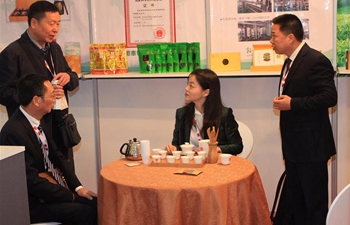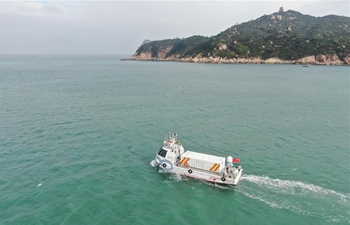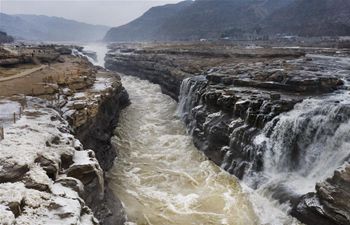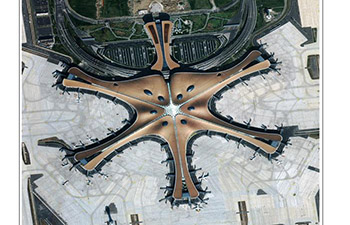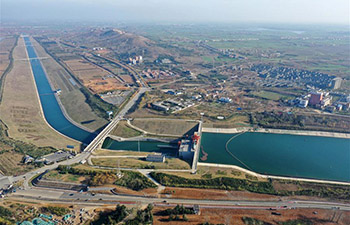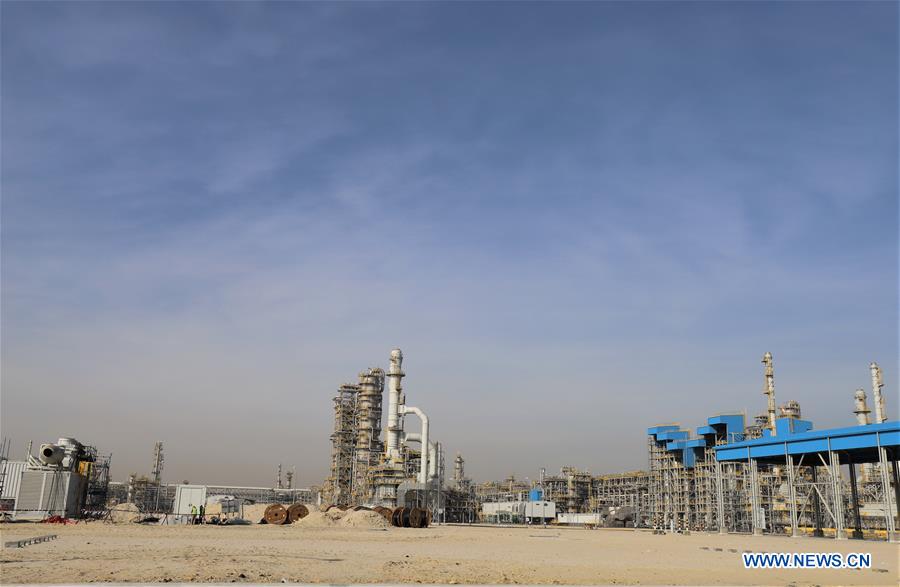 ?
?Photo taken on Dec. 12, 2019 shows the Al-Zour New Refinery Project (NRP) in Ahmadi Governorate, Kuwait. Located in the southern desert of Kuwait, the Al-Zour New Refinery Project has been hailed as a model for the "mutually beneficial win-win cooperation" between Kuwait and China under the Belt and Road Initiative (BRI). Marking a major progress in the project, the installation of all 15 sets of main oil-refining units were completed on Thursday. (Xinhua/Nie Yunpeng)
KUWAIT CITY, Dec. 13 (Xinhua) -- Located in the southern desert of Kuwait, the Al-Zour New Refinery Project (NRP) has been hailed as a model for the "mutually beneficial win-win cooperation" between Kuwait and China under the Belt and Road Initiative (BRI).
Marking a major progress in the project, the installation of all 15 sets of main oil-refining units were completed on Thursday.
As a key project under the Kuwait Vision 2035, the NRP, with an estimated investment of 27 billion U.S. dollars, is co-built by Kuwait and a dozen of foreign contractors, with Chinese companies winning half of the contract, in term of its value, for supplying the process units.
Kuwait Vision 2035 is a national development plan designed to reform Kuwait's oil-reliant economic structure and transform the oil-rich Gulf state into a trade and financial hub by 2035.
Once put into operation, the NRP will become one of the largest oil refineries in the Middle East that will greatly increase Kuwait's oil processing capacity.
At the?completion ceremony on Thursday, Zheng Li, project manager of China Petrochemical Corporation (Sinopec) Luoyang Engineering Co. Ltd, the designer of some NRP process units, said that this project "reflects the Chinese concept of mutually beneficial win-win cooperation."
As a member of the project's general contractor, Sinopec Luoyang was involved in the whole process of design, construction, procurement and installation of the oil-refining units, Zheng said.
Six sets of the units, constructed by Sinopec 5th Construction Company, were handed over to its general contractor at the end of October.
This is the first time that the Chinese design was adopted by Kuwait's refinery industry, Zheng said, adding that his company used international advanced technology in building three-dimensional design models.
He said that his company truly implemented the Chinese concept of "mutually beneficial win-win cooperation," as adopted by the BRI, while participating in the NRP construction.
During the purchasing and construction process, Sinopec guaranteed that a fixed percentage of the total contract value was given to local manufacturers in Kuwait as benefits, Zheng revealed.
He highlighted the economic benefits that the NRP will bring to Kuwait, citing that it will transform Kuwait from a resources-exporter to a products-exporter, which will give a boost to its economic development.
In addition to boosting Kuwait's economic development, the project also benefits many countries along the Belt and Road routes, Zheng said.
During the peak of construction, more than 19,000 workers were working at the NRP site, two-thirds of whom from the countries along the Belt and Road routes such as Pakistan, Egypt and Vietnam.
In the purchasing process, a large number of oil-refining equipment and products were bought from the countries including Malaysia, the United Arab Emirates, and Egypt.
The project also offers an opportunity for some Chinese manufacturers of oil refining equipment to go overseas, with the total contract value exceeding 100 million dollars, Zheng said.
Osamah Ali Al-Atawneh, the representative of Kuwait Integrated Petroleum Industries Company, the developer of the NRP, praised China's role in the project.
"This is one of the biggest projects in the oil industry worldwide and we are very happy to have Sinopec as a part of this project," Al-Atawneh said.
"They have preformed very well in this project, and we will be really happy to see them participating in similar projects in Kuwait in future," he said.
Christopher Smith, the project manager of Wood Kuwait who supervises the project, said that he was impressed with the "excellent job" done by thousands of workers from China on the project.
"All praises and all thanks to the dedication and hard work of the Chinese workers," Smith said.




